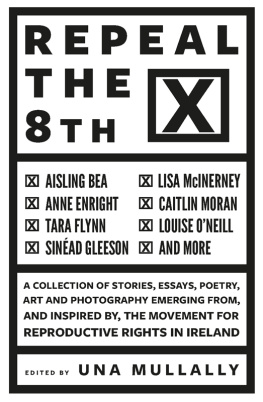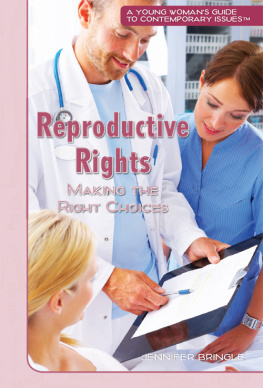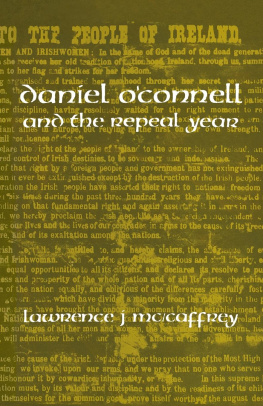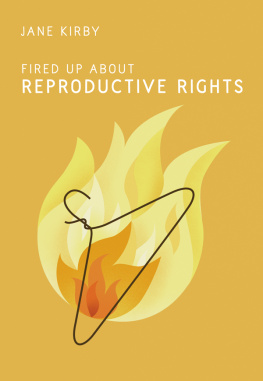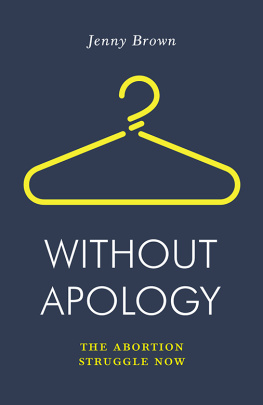Colgan Stevyn - Repeal the 8th
Here you can read online Colgan Stevyn - Repeal the 8th full text of the book (entire story) in english for free. Download pdf and epub, get meaning, cover and reviews about this ebook. City: London;Irland, year: 2018;2017, publisher: Unbound, genre: Home and family. Description of the work, (preface) as well as reviews are available. Best literature library LitArk.com created for fans of good reading and offers a wide selection of genres:
Romance novel
Science fiction
Adventure
Detective
Science
History
Home and family
Prose
Art
Politics
Computer
Non-fiction
Religion
Business
Children
Humor
Choose a favorite category and find really read worthwhile books. Enjoy immersion in the world of imagination, feel the emotions of the characters or learn something new for yourself, make an fascinating discovery.
- Book:Repeal the 8th
- Author:
- Publisher:Unbound
- Genre:
- Year:2018;2017
- City:London;Irland
- Rating:3 / 5
- Favourites:Add to favourites
- Your mark:
- 60
- 1
- 2
- 3
- 4
- 5
Repeal the 8th: summary, description and annotation
We offer to read an annotation, description, summary or preface (depends on what the author of the book "Repeal the 8th" wrote himself). If you haven't found the necessary information about the book — write in the comments, we will try to find it.
Repeal the 8th — read online for free the complete book (whole text) full work
Below is the text of the book, divided by pages. System saving the place of the last page read, allows you to conveniently read the book "Repeal the 8th" online for free, without having to search again every time where you left off. Put a bookmark, and you can go to the page where you finished reading at any time.
Font size:
Interval:
Bookmark:

Una Mullally is an award-winning journalist with the Irish Times , author and broadcaster. She is the author of In the Name of Love , an oral history of the movement for marriage equality in Ireland. She lives in Dublin.
For all of the women who have travelled for abortions, for all of the women who couldnt afford to, for all of those who have told their stories, and for those who kept those stories to themselves, for all of those who are campaigning for womens reproductive rights in Ireland and Northern Ireland, and for those who have gone before us who did the same. For all of those who have suffered under the Eighth Amendment, our liberation is near.
Dear Reader,
The book you are holding came about in a rather different way to most others. It was funded directly by readers through a new website: Unbound. Unbound is the creation of three writers. We started the company because we believed there had to be a better deal for both writers and readers. On the Unbound website, authors share the ideas for the books they want to write directly with readers. If enough of you support the book by pledging for it in advance, we produce a beautifully bound special subscribers edition and distribute a regular edition and ebook wherever books are sold, in shops and online.
This new way of publishing is actually a very old idea (Samuel Johnson funded his dictionary this way). Were just using the internet to build each writer a network of patrons. At the back of this book, youll find the names of all the people who made it happen.
Publishing in this way means readers are no longer just passive consumers of the books they buy, and authors are free to write the books they really want. They get a much fairer return too half the profits their books generate, rather than a tiny percentage of the cover price.
If youre not yet a subscriber, we hope that youll want to join our publishing revolution and have your name listed in one of our books in the future. To get you started, here is a 5 discount on your first pledge. Just visit unbound.com, make your pledge and type repeal5 in the promo code box when you check out.
Thank you for your support,

Dan, Justin and John
Founders, Unbound
UNA MULLALLY
In the midst of social change, what stories do we tell ourselves and each other? And do we remember them? Right now in Ireland, there are conflicting narratives about what kind of place we are and what kind of place we can be. What do we want to consign to the past and what do we want to preserve? What are we fighting for? The movement for womens reproductive rights in Ireland is a long and bitter one. It is also inspiring. Within that movement there are multiple narratives, but what is clear is that art, literature and design have emerged from the movement, and continue to do so. When this battle is over, thats a legacy worth preserving and reflecting on.
When social movements progress and realise their goals, what came before the t-shirts, the badges, the essays, the poems, the placards get put in drawers and in attics. No longer necessarily serving a purpose, the wave of art that pushed forward debate and stories and thoughts recedes. But this art is what colours a movement.
This book is an attempt to document the aspects of a movement that are often forgotten when its goal has been achieved. It is not a history of the movement for reproductive rights in Ireland, nor an academic study. It is not polemic nor a debate. What it does try to capture is the art, literature, design, personal experience, poetry and journalistic writing that have developed out of or been inspired by the movement for reproductive rights, particularly centring around the campaign to remove the Eighth Amendment, the Irish constitutional ban on abortion.
In this book, you will find reflections from writers, artists, journalists, campaigners and people who have personally experienced, at a very visceral level, the impact of the abortion ban in Ireland, and also the thoughts and visual articulations of those who engage with the impact of those laws.
Our art and our conversations are products of our environment. The acts of expression related to our restrictive abortion laws at this time take many forms. They are murals on walls and ideas for poems; they are essays and personal stories; they are screenplays and short stories; they are textile designs and photography; they are graphic design and things we need to get off our chest. This collection of work is free-flowing, and purposefully chooses a thematic narrative over a linear one. The movement itself is both personal and collective political and social, and we discuss it with humour and with tears, anger and meditation. It is both abstract and concrete. As a result this anthology is purposefully inconclusive. It aims to both directly address the issues and reflect upon them.
It is difficult to have a perspective on something that is ongoing. But when civil rights campaigns achieve their goals, the narrative of their history always becomes a point of view. This book attempts to capture the energy, articulated through art and discourse as it happens. Some pieces directly address certain issues; others offer a broader assessment of our environment and social history.
Although the midst of progress can sometimes feel characterised by backlash, resistance and conflict, Ireland is experiencing a wave of social change that is driven by multiple generations; those who have stayed the course and fought for civil rights for decades, and a new generation agitating with righteous impatience for a country that reflects them.
Like many people, I was indoctrinated by the Catholic Church in school and at mass to believe that abortion was evil. As I grew older, the process of shedding that indoctrination was revelatory. My memories of how sex and reproduction were spoken about in school are hazy; visiting nuns talking about black marks on our souls, or equating our souls with the water used to clean our classroom paintbrushes how one dirty brush could soil the whole jar. There were sensational lectures about abortion, using language I knew to be inflammatory, and later learned to be totally inaccurate. Sex was dangerous, to be feared, certainly not spoken about with adults beyond the classroom context of anatomical drawings of penises and wombs in biology books. The violent anti-choice language and imagery followed us around. It took up space on placards on Shop Street in Galway or outside the General Post Office in Dublin. I am thirty-four years old. This is not ancient history.
At sleepovers in friends houses sober, skittish ones first, then tipsy teenage ones the secrets of families unravelled. We all had them; the older female relatives sent away to Magdalene Laundries, places for fallen women or Mother and Baby Homes, or who had babies taken from them. Travel just a branch or less down the average Irish family tree, and youll find these repeating patterns: the systematic imprisonment, punishment and forced exile of our own women; the illegal child trafficking; the abuse and torture. Occasionally the especially abhorrent, especially cruel, especially tragic stories make it into the headlines, but for every one of those, there are thousands more, the white noise of the subjugation and oppression of women.
The greatest oppression does not have to be meted out by some ferocious dictator. We do it to one another, to ourselves. The collusion in how the bodies of Irish women have been policed how lives have been destroyed, sometimes ended; how women in Ireland have been systematically punished for daring to be sexual beings stinks of guilt and shame and secrecy.
Next pageFont size:
Interval:
Bookmark:
Similar books «Repeal the 8th»
Look at similar books to Repeal the 8th. We have selected literature similar in name and meaning in the hope of providing readers with more options to find new, interesting, not yet read works.
Discussion, reviews of the book Repeal the 8th and just readers' own opinions. Leave your comments, write what you think about the work, its meaning or the main characters. Specify what exactly you liked and what you didn't like, and why you think so.

